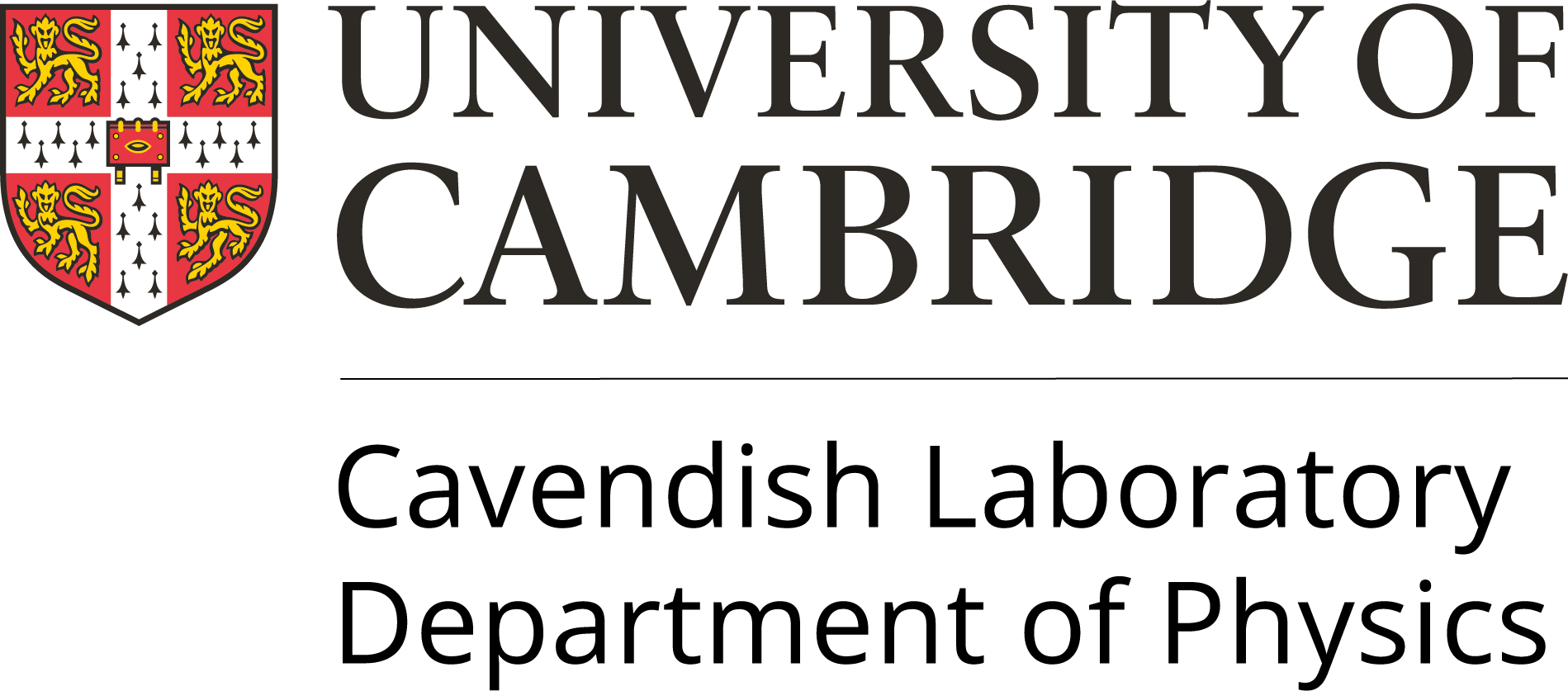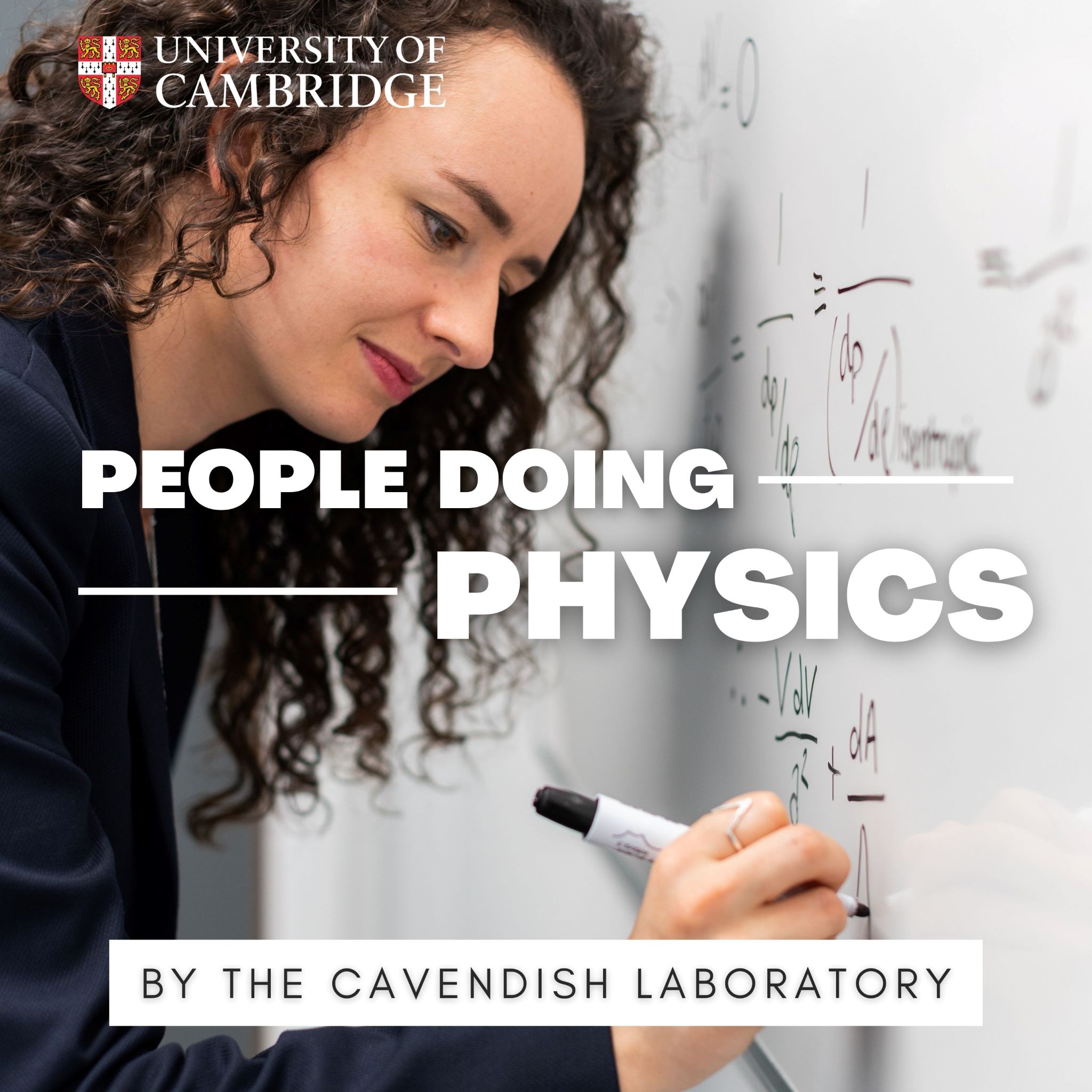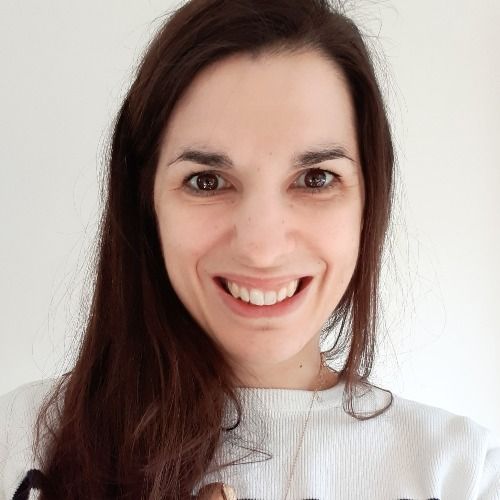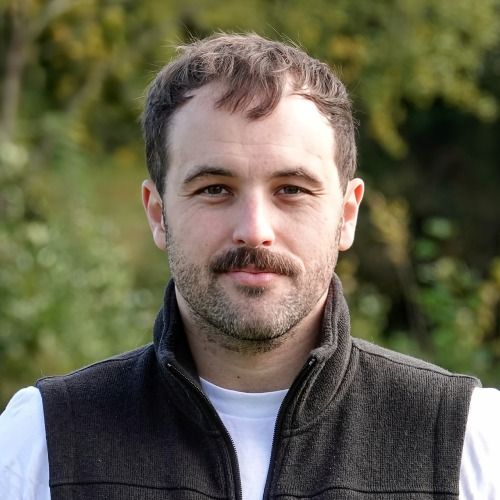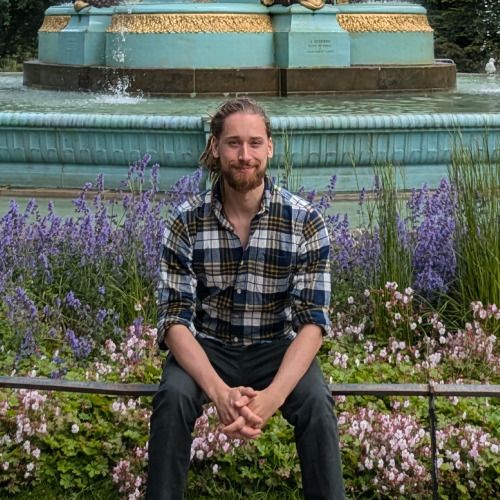Joanna Piotrowska
Intro
Our guest this month is Joanna Piotrowska, a PhD student looking at galaxy formation and evolution in the group of Prof. Roberto Maiolino. By using a mix of observational cosmology and numerical simulations, Joanna is studying how supermassive black holes – the giant black holes thought to reside at the center of every galaxy – can influence star formation, and in particular the mystery of why certain galaxies cease to generate any new stars.
Joanna was born and raised in Warsaw, Poland. During her high school years, she quickly discovered her two great passions: artistic expression and the universe. At first, she contemplated going to art school, and even prepared a portfolio for her application, but in the end, she chose to move to Cambridge to pursue a degree in natural sciences.
To this day, though, she tries to combine her artistic side with her scientific one. On the one hand, her studies of black holes and star formation inspire her artistic work with water-based paint on silk. On the other hand, she uses her knowledge about color theory and form to make the visual aids in her publications more accessible and meaningful. However, her long-term goal is not just to study space; she wants to become an astronaut and actually visit it.
We will chat with her about walking the fine line between observational cosmology and numerical methods, the importance of outreach communication in science, and the skills required to become an astronaut and how she is preparing for it.
Stay with us…
Please help us get better by taking our quick survey! Your feedback will help us understand how we can improve in the future. Thank you for your time.
[00:33] - Guests intro
[02:10] – Astrophysics most fascinating field of physics
[03:00] – Early background and fascination of observing the sky attracted her to astrophysics
[04:50] – Experience of meeting a Polish astronaut
[05:55] – Making a choice between Arts and Physics
[08:20] – Motivation behind studying physics in Cambridge, UK
[10:38] – Experience in UK studying physics and choosing Astrophysics
[12:38] – Experience with untold side of physics with the coding/simulation side of physics
[13:55] – Astrophysics melting pot of all the different fields in physics
[15:45] – Inspiration behind looking at the influence of supermassive black holes on star formation in galaxies during PhD
[16:46] – Steep learning curve
[19:02] – Walking the thin line between observational astrophysics and simulations
[20:20] – Using publicly available data for the research extremely important
[22:54] – Postdoctoral position at Caltech and research related to physics of accretion disks around black holes
[25:10] – In the news this month: Researchers have discovered a new effect in two-dimensional conductive systems that promises improved performance of terahertz detectors. A team of scientists at the Cavendish Laboratory, together with colleagues at the Universities of Augsburg (Germany) and Lancaster, has found a new physical effect when two-dimensional electron systems are exposed to terahertz waves.
[27:22] – Finding ways of combining arts with science
[28:51] – Suggestions on improving scientific communication
[31:42] – Dream of becoming an astronaut and preparation
[32:55] – Path to be followed towards becoming an astronaut
[34:18] – Choosing the public vs private sector for space travel
[35:33] – Future of space life is tourism
[36:51] – Outro
Useful links:
- Visit the Cavendish Astrophysics to learn more about their research.
- Read the article on this month’s news - One step closer to making terahertz technology usable in the real world
- Journal Article link of the news release- An in-plane photoelectric effect in two-dimensional electron systems for terahertz detection.
- To learn more about the Cavendish Laboratory, or if you are interested in joining us or studying with us, go to www.phy.cam.ac.uk
Share and join the conversation
- If you like this episode, don’t forget to rate it and leave a review on your favourite podcast.
- Any comment about the podcast or question you would like to ask our physicists, email us at podcast@phy.cam.ac.uk or join the conversation on Twitter using the hashtag #PeopleDoingPhysics.
Episode credits:
Hosts: Paolo Molignini and Jacob Butler
News presenter: Simone Eizagirre Barker
Producer: Chris Brock
This podcast uses the following third-party services for analysis:
OP3 - https://op3.dev/privacy
